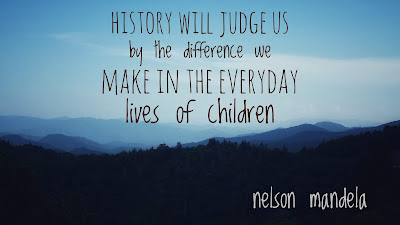Take Care of Them
Allow me to enlighten you... I decided that I would survey the 4th and 5th graders to get some insight as to how they are feeling about being back to school. It was my intent that the kids be totally honest, so students were not required to include their names on their surveys. Below, I'll share with you the questions, the most common answer, and an answer to ponder.
1. How I feel about being back at school:
Most common answer: Happy, excited, don't like the masks.
Answer to ponder: It's OK being back but it's crazy. (What can adults do to reduce that chaotic feeling?)
2. I have a trusted adult at school that I can go to if things get tough:
Most common answer: Yes
Answer to ponder: No (We obviously need to be refocusing on relationships if even one student says "no" to this.)
3. I have friends in my class and I feel included:
Most common answer: Yes
Answer to ponder: No (How can we encourage more inclusivity in the classroom, especially now that almost all classrooms are self contained, not mingling with other classes?)
4. I talk to family members about my problems:
Most common answer: Yes
Answer to ponder: No (We know that some kids don't easily talk to family. Those trusted school adults can tune in and unobtrusively provide quiet, non-judgmental emotional support.)
5. I am more stressed this year than most other years:
Most common answer: Yes
Answer to ponder: Yes (We would assume that kids are more stressed than usual, but are we considering that as we conduct our daily business?)
6. Some things that I worry about are:
Most common answers: COVID-19, going back to virtual school, getting sick, someone in my family getting sick, what if someone in my family dies?, "the world, " when kids don't wear masks properly at school...
Answers to ponder: 👆👆 THE ABOVE!! These are not small things!! (Also, note that no one said they are worried about their grades...)
None of us is living in a cave. We know our kids are stressed, anxious, and confused. We're just not always focused on it because life is happening, and we, ourselves, are trying desperately to keep up. We know that stress is often the result of change. Humans are not great with change. So, let's think about all the changes we've had to contend with in the last 7 months... school closures and virtual learning, isolation from friends and family, masking and social distancing requirements, having to consider health and safety with everything we do, coming back to school with new rules and new routines, parental unemployment and money troubles, moving, changing schools, starting kindergarten... the list goes on, and on, and hanging like a cloud over all of that change is the virus. We cannot underestimate the impact of the constant awareness of the virus.
It's becoming obvious that folks of all ages are struggling with more emotional difficulty and mental illness than ever. We know the usual signs, but there are some uncommon signs too...
Unusual physical signs of stress in children may be: insomnia, hair loss, weight fluctuations, dental problems, skin problems (acne/rashes), developmental regression (bedwetting), symptoms of illness, appetite inconsistency,
Unusual emotional signs of stress in children may be: regression to self comforting behaviors used in early childhood (thumb sucking), increased clinginess, increased emotional distancing, decreased focus or attention span.
Per my own discussions with the kids about stress...
They recognize stress in themselves as tense muscles, headaches, stomachaches, dizziness, butterflies in their tummies, aches and pains, feeling tired, being angry, crying, and wanting to stay home (pretty astute if I do say so).
They recognize that the "antidote" to stress is feeling calm. They identify activities that help them to calm down: exercise, reading, listening to music, napping, yoga, playing outside, being with friends and family, going to camp ("the rural advantage!!").
- First and foremost, we can help to reassure them that we are going to do our best to keep them safe and to know that they are loved. Sounds too simple, but oh, so needed!
- Keep the lines of communication open. Make sure your kids or students know that you are open to talk about anything. Make the time to "check in" regularly.
- Model and encourage positive coping skills. You know what they are, and you know what works for you.
- Spend quality time together: time that is not chores or errands... play dates, dining together, watching movies, reading, or just talking.
- Model self care! Let's teach our kids that self care is simply a part of living a healthy life.
At the end of the day, it comes down to awareness... self awareness, and awareness of how others are doing. Don't underestimate the good that you can do by just being present with a child exactly where they are in that moment.
Take care of them. Take care of you. 💖







Comments
Post a Comment